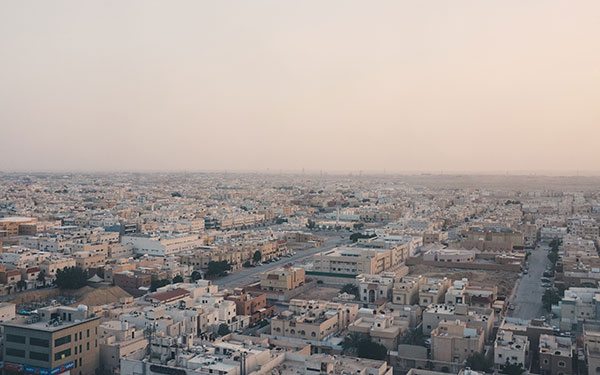Considering moving to Saudi Arabia from the UK? Make sure you read our guide first.
Are you ready to be amazed by the hidden wonders that Saudi Arabia holds? The wealth and power created by Saudi Arabia’s immense natural reserves of gas and oil have dramatically changed the face and culture of this desert country, creating an astounding mix of deep rooted religious beliefs, ancient sites and monuments and mysterious culture, with lively cosmopolitan cities filled with sparkling high rise malls and world class restaurants — the epitome of decadent modern living.
Saudi’s landscape is also far richer and more diverse than you may think.
Yes, there is plenty of desert, but it is dotted with lush oases and rivers, lofty mountains ideal for trekking, and rimmed by the Red Sea with its spectacular coral reefs which offer some of the best diving on earth.
Being so starkly different to the UK, Saudi Arabia can be daunting for Brits, but that hasn’t prevented over 26000 of them making their home here. Are you thinking of joining them?
If the answer is yes, you’ll need to read this guide — it contains indispensable information about visas, the cost of living, lifestyle and culture, finding jobs, and much more for British people wanting to move to Saudi Arabia…
Contents
Saudi Arabia Visa Requirements for Brits
Make no mistake, Saudi Arabia is difficult to get into, and the visa requirements for entering and exiting the country are complicated.
All types of visa for British citizens require a sponsor — and women travelling alone must be met by their sponsor or a male relative on arrival.
You can apply for a visa up to 3 months before your intended entry date, and passports must be valid for at least 6 months after the date of entry.
Applications for all visas can be made online, or through an authorised visa services agent listed on the Embassy of Saudi Arabia website.
Here’s what you need to know in a nutshell…
Visiting
Currently there is no tourist visa available for British citizens wanting to visit Saudi Arabia, however it may be possible to apply for a personal visit or family visa.
Family visas are only allocated to people who have been invited to enter Saudi Arabia by a sponsor or family member resident in the country.
In order to apply you will need an official invite from the Saudi Ministry of Foreign Affairs (MOFA), and it is the responsibility of your sponsor to contact the MOFA to have the invite issued.
Once you have your official invitation you must complete the required visa application form and provide 2 colour photos. You will also need a return ticket in advance as proof that you will be leaving the country within the authorised time period.
Working
Long term employment in Saudi requires an Iquama — or residency permit — which can be obtained by your sponsor from the Saudi Ministry of Foreign Affairs, which must be processed within 3 months of your arrival in the country.
The process of applying for a work or residence visa is long, and can take a couple of months.
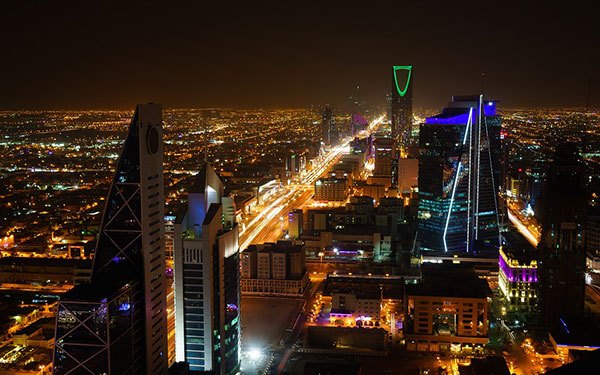
To obtain your work visa you will also have to provide a full medical report authenticated by the British Foreign and Commonwealth Office, and a letter of invitation from your Saudi sponsor company, as well as a copy of your work contract, CV, copies of any academic qualifications certificates, and an official certificate from the UK police stating that you have no criminal record.
Permanent Residency
Residence and citizenship laws in Saudi Arabia are highly restrictive, and expats with permanent residence are practically non-existent.
The majority of expats stay and work for a few years until there are no further visa options, and then move elsewhere.
However, in rare cases it is possible to acquire Saudi citizenship. In order to even be considered you will need to have been permanently resident in Saudi Arabia for 10 years, along with having an impeccable record of behaviour, being fluent in Arabic, and working in a highly skilled, high demand profession.
Way of Life in Saudi Arabia
Lifestyle
The Saudi lifestyle can come as a huge culture shock to many expats, but provided you have respect for and are receptive to the Saudi way of life you will be able to enjoy your time in the country.
This is a highly private and extremely religious society, and there are numerous rules and regulations that can alter the lifestyle of expats dramatically — particularly women — but it is important that you abide by them if you want to get along in day to day life.
That said, the Saudi government is making moves to relax certain rules, and life here is a little more laid back than it used to be.
Here are some useful insights into life as an expat in Saudi:
It is severely frowned upon for men and women to interact together in public places unless it is on official business, and separate sex areas in offices, restaurants, and other spaces that would normally be shared in the UK is common.
Whilst men are permitted to wear whatever they choose as long as it is respectable, woman are required by Sharia law to wear an abaya (a long, dark robe that covers the body from neck to ankles).
Thankfully modern abayas are available in multiple different styles and fabrics, allowing more choice and expression of personal taste.
Women who accompany their husband on his work visa are also expected not to go out and work, and to just stay at home.
Up until very recently women weren’t allowed to drive, but new regulations are being put in place to change this.
There are also multiple job restrictions in place for women, preventing them from working in potentially hazardous roles, which means that most jobs revolve around more domestic skills such as cleaning, teaching, childcare, and fashion and retail.
Alcohol is forbidden throughout the whole of the country, which can put a bit of a downer on evenings out.
That said, rules are a little more relaxed in the western compounds (see below), some of which have bars and pubs and permit alcohol in restaurants.
Drugs are strictly illegal, and expats caught in possession of them will suffer severe punishment, and may even face the death penalty.
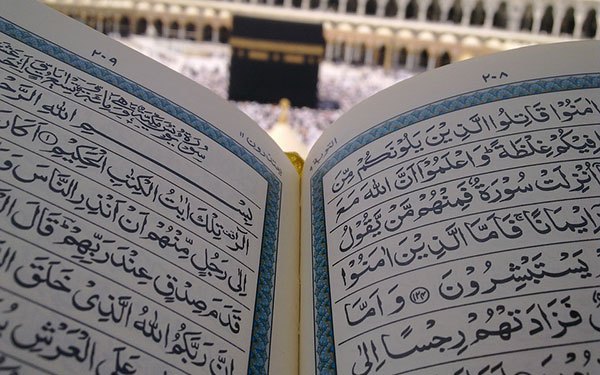
Most expats live in designated, secure western compounds, (living outside them is discouraged), many of which are luxurious and feature swimming pools, restaurants, fitness centres, bowling alleys, their own shops and markets, and more. While this is a great way to meet other expats and make new friends, it does make it harder to integrate with Saudi society outside of the work environment.
Getting Around
There are various ways to get around Saudi Arabia.
In the cities taxis — also known here as limousines — are the main mode of transport. They are very safe and can be found anywhere.
Fares are metered but you can also negotiate your price before starting out as that way you may get a better deal – particularly on longer journeys.
Alternatively take an Uber as this also offers a reliable and safe service. Women are permitted to travel alone in both taxis and Ubers providing they remain in the back seat.
For travelling further afield you can choose to travel by air, bus, or train.
Air travel is convenient, and there are several domestic airports within the country. The main airline is Saudia, which offers connections between all major cities.
Budget airline Flynas offers cheaper flights but with less wide coverage.
The roads in Saudi are generally of a high standard, and the Saudi Arabian Public Transport Company offers comfortable, well appointed and air conditioned buses covering routes between the major cities.
Long distance bus journeys offer a cost effective way to travel, and women are permitted to travel unaccompanied.
If you choose to travel by bus, make sure that you have your residency permit and passport close to hand at all times.
The train network in Saudi Arabia is very limited, and there is currently only one route available which travels between Riyadh and Dammam via Al Hofuf, Al Asha and Abqaiq.
There are 3 classes of ticket available including a VIP class, and woman can travel alone provided they carry the correct documentation.
Luggage is carried separately and will go through x-ray checks before loading.
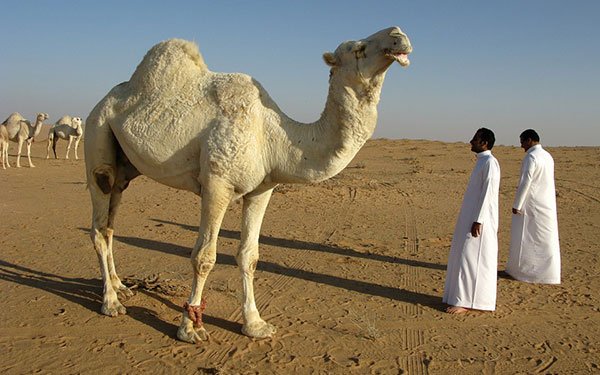
Driving in Saudi
Whether you’re in the city or need to take longer trips, driving your own or a hire car can be good option, although it’s worth bearing in mind that the behaviour of other drivers can sometimes be erratic, with running red lights and speeding being typical offences, and there is a fairly high incidence of traffic accidents.
Petrol is extremely cheap — much cheaper than in the UK.
A UK and / or international driving license accompanied by a translation into Arabic is usually sufficient, but it may be worth your while to obtain a local driving license in addition — certainly if you are planning on staying in Saudi for more than 3 months.
The road infrastructure in the cities is good, and many road signs are written in English as well as Arabic.
Car hire for expats is common, and most towns and cities have international car hire companies based there, but you must be 25 or older.
Drive on the right side of the road and keep your driving license and documents with you at all times or you risk a heavy fine.
Weather in Saudi Arabia
If you think you know what hot is — think again.
Saudi Arabia has a desert climate, when means that it is extremely hot during the day — sometimes unbearably so in summer from May through to August — with temperatures soaring to between a staggering 45° C and 54° C.
Night time brings a sharp drop in temperature, and there is very little rainfall throughout the year, with most being concentrated during the winter months (when temperatures also ease off to a much more bearable 20 °C on average), with February seeing the highest rainfall and occasional storms.
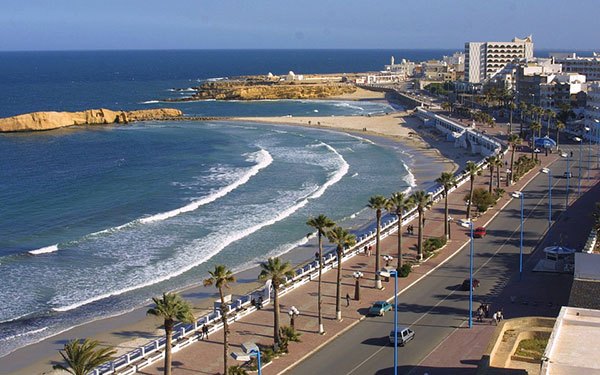
Cost of Living in Saudi Arabia
The Middle East can be an expensive place to live, but this is usually offset by higher salaries and / or profitable relocation packages put together by employers that include allowances for living costs such as rent, transport, medical insurance and school fees.
The cost of living in Saudi Arabia is more expensive in the cities and suburbs than in more rural areas, and certain cities such as Dubai and Abu Dhabi are more expensive than less popular locations.
Lifestyle
As long as you stick to local products, groceries are reasonably priced, as are clothes and electronic goods.
Imported foods however are considerably more expensive, and dining out in restaurants can put a bit of a dent in your wallet (the equivalent of around £30 per head for a mid range restaurant), although it is possible to find more affordable eateries.
As alcohol is prohibited in Saudi, there are no clubs or bars in the city — aside from pubs you may find in western compounds — so the cost of buying drinks won’t be cutting into your budget.
Cars and fuel are much cheaper than in the UK, giving expats to own and run a luxury vehicle that they might not be able to have back home.
Utilities are reasonable, but electricity usage for air conditioning can increase during the summer months, causing a sharp rise to your monthly bills.
Rent
Wherever you choose to live in Saudi, rent is almost certainly going to be your biggest expense.
Accommodation in western compounds is in high demand, which has resulted in a huge price hike for rental properties.
Prices vary depending on your location, but as a rough guide you can expect to pay the equivalent of around £1000 to £1500 per month on average for an unfurnished 2 bedroom apartment.
Rental costs are significantly lower if you decide to live outside the compounds, but westerners rarely choose this option.
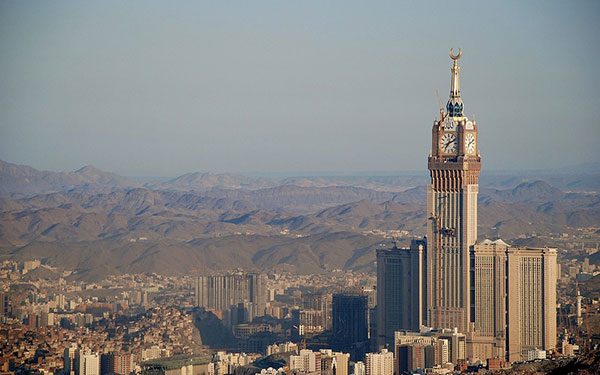
Healthcare
Saudi Arabia is well known for having an excellent healthcare system — particularly in the cities and other urban areas.
Public hospitals are funded by non-profit organisations or the government, and the standard of healthcare is to a very high standard, with English being widen spoken by doctors and staff.
Private hospitals are usually run by international corporations, and provide an exceptional service, with the advantage over public hospitals being more advanced facilities, greater numbers of highly qualified consultants specialising in specific ailments, and fast response units.
This additional quality of service does come at a price however, and treatment at a private hospital or clinic can be expensive.
Expats are required by law to have private health insurance, and visas will not be issued without it.
Saudi employers often provide medical insurance cover as part of the salary package for expats, but if you need to find your own health insurance, many Saudi insurance companies provide competitive deals for anywhere between £1000 and £1500.
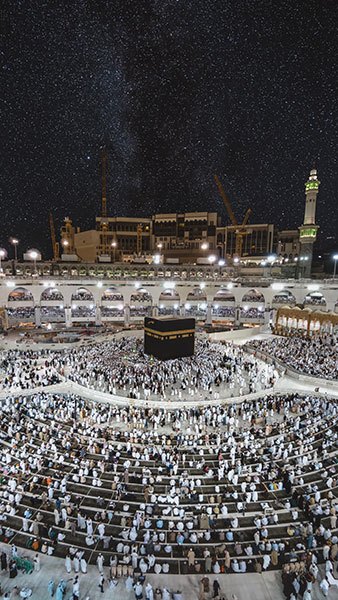
Schooling
Except in rare cases, children of expat families are excluded from Saudi Arabian public schools, so parents have no option to send them to international schools which follow a curriculum similar to that of the UK.
International schools are available at primary, intermediate and secondary level, and can be found in all the major cities.
The major drawback to this is cost. International schools in Saudi Arabia are prohibitively expensive, and getting your child enrolled can be tricky as there are long waiting lists and in some cases entrance exams.
Depending on the school, fees can cost anywhere between 25000 and 35000 SAR per year, which in English money is roughly between £5200 and £7500, with fees tending to increase annually.
If you’re looking to educate your children whilst living in Saudi, it’s advisable to negotiate an allowance to cover school fees as part of your salary package.
Popular Areas for Brits
Riyadh
Captivating Riyadh is the wealthiest city in the Arab world.
Also known as the Desert Rose, the ancient city of Riyadh sprung up along desert trade routes.
Firmly rooted in the traditions of its historical past yet brazenly modern, today Riyadh is the glittering capital of the Saudi Kingdom, where spectacular glass towers surge towards the sun, gourmet restaurants abound, and the shopping is second to none.
Jeddah
This grand seaport city sits majestically on the coast of the Red Sea at the gateway to Mecca and Medina.
Steeped in history, at the heart of Jeddah, the old city boasts ancient rose tinted architecture and atmospheric souqs, whilst the modern city offers plenty to do, with excellent restaurants famed for delicious seafood cuisine, and enough glitzy malls to please any avid shopper.
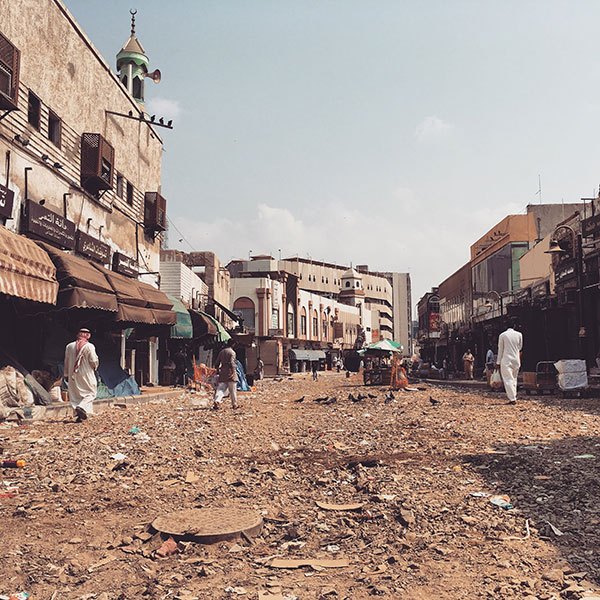
Dammam
An oasis in the desert and just a short distance from stunning white sandy beaches and excellent dive spots, cosmopolitan Dammam is a young and vibrant city serviced by the largest airport in the world.
Not only is Dammam a shopper’s paradise with a world class dining scene, the city also touts beautiful green spaces and leafy parks.
Medina
Encircled by granite mountains and one of the most holy cities in the world, mysterious Medina is home to the oldest mosque in existence, and is visited each year by hundreds of thousands of pilgrims on their way to Mecca.
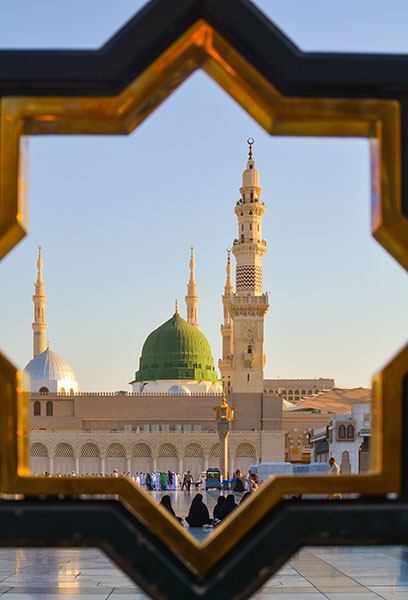
Jobs in Saudi Arabia for British Expats
Excellent opportunities exist for skilled expats wanting to work in the Kingdom of Saudi Arabia.
However, the Saudi government closely controls the number of jobs available to foreign workers, and many Saudi companies prefer to hire locally or family members, which can pose challenges for some expats.
That said, industries such as IT, real estate, engineering, healthcare, banking and finance, healthcare, teaching and construction are booming and skilled employers in these areas are in high demand, opening up numerous work possibilities to expats with appropriate experience.
It is critical to find employment before entering the country, and the best way to this is via international recruitment agencies working in the UK.
Are you considering a move to Saudi Arabia from the UK?


